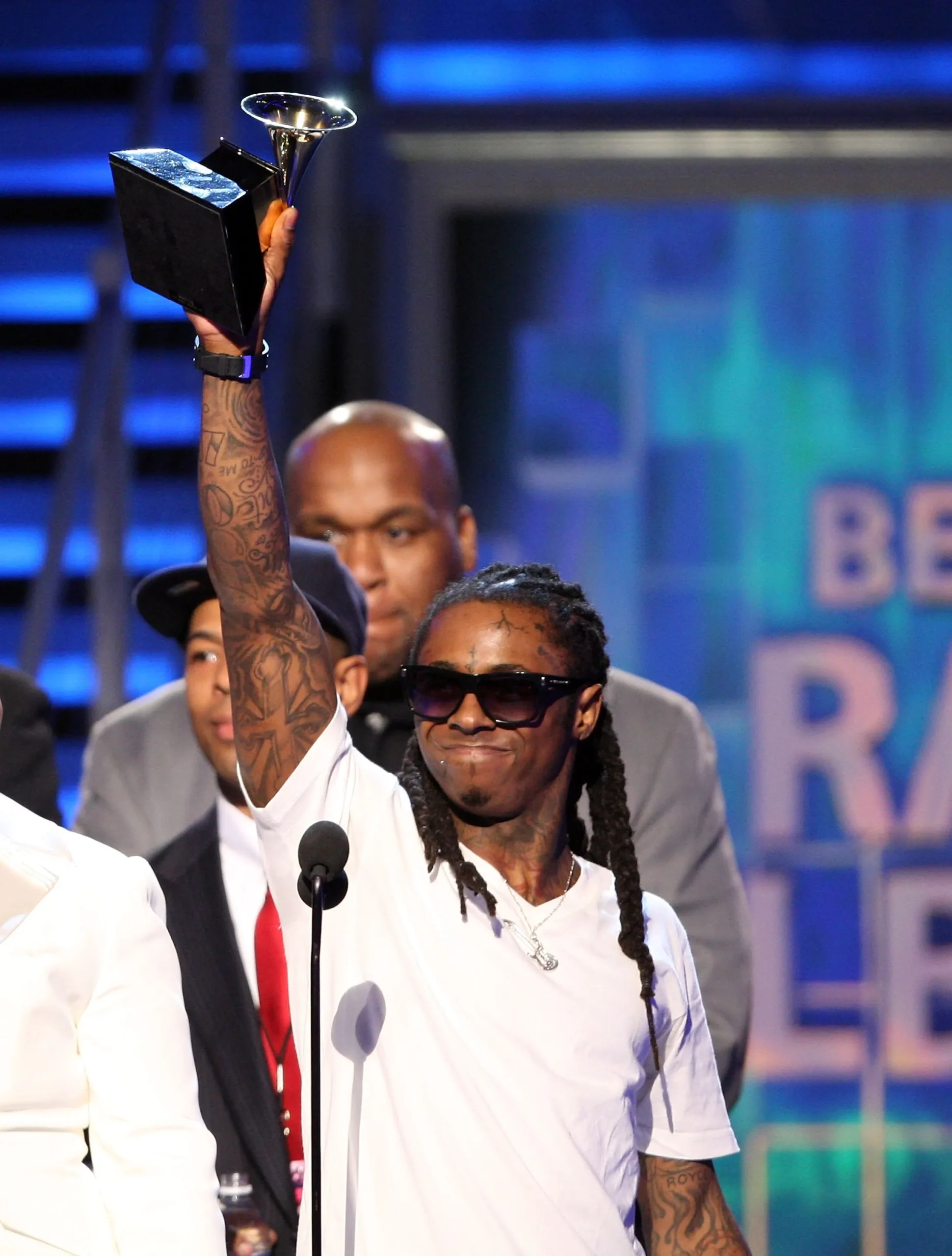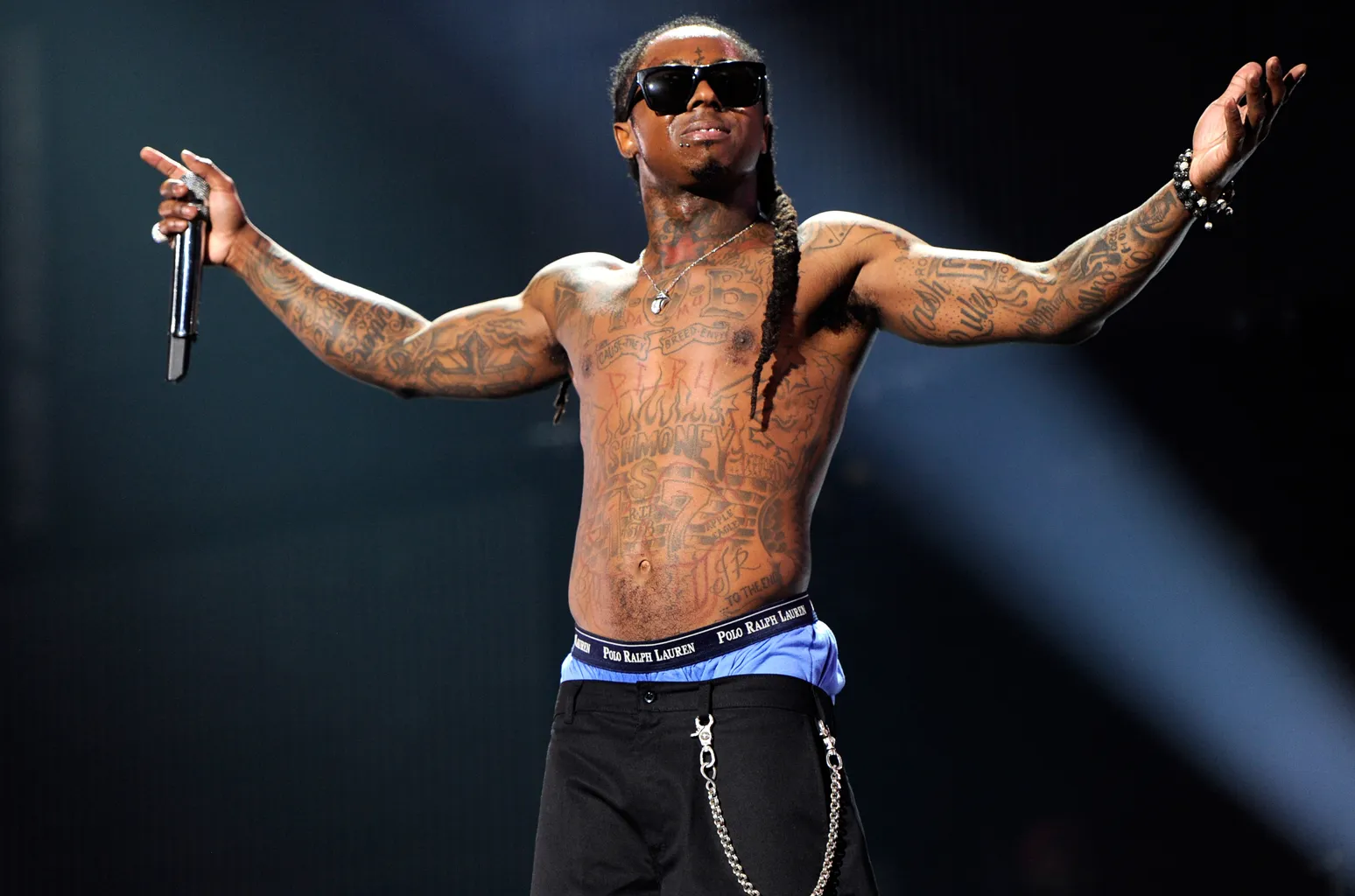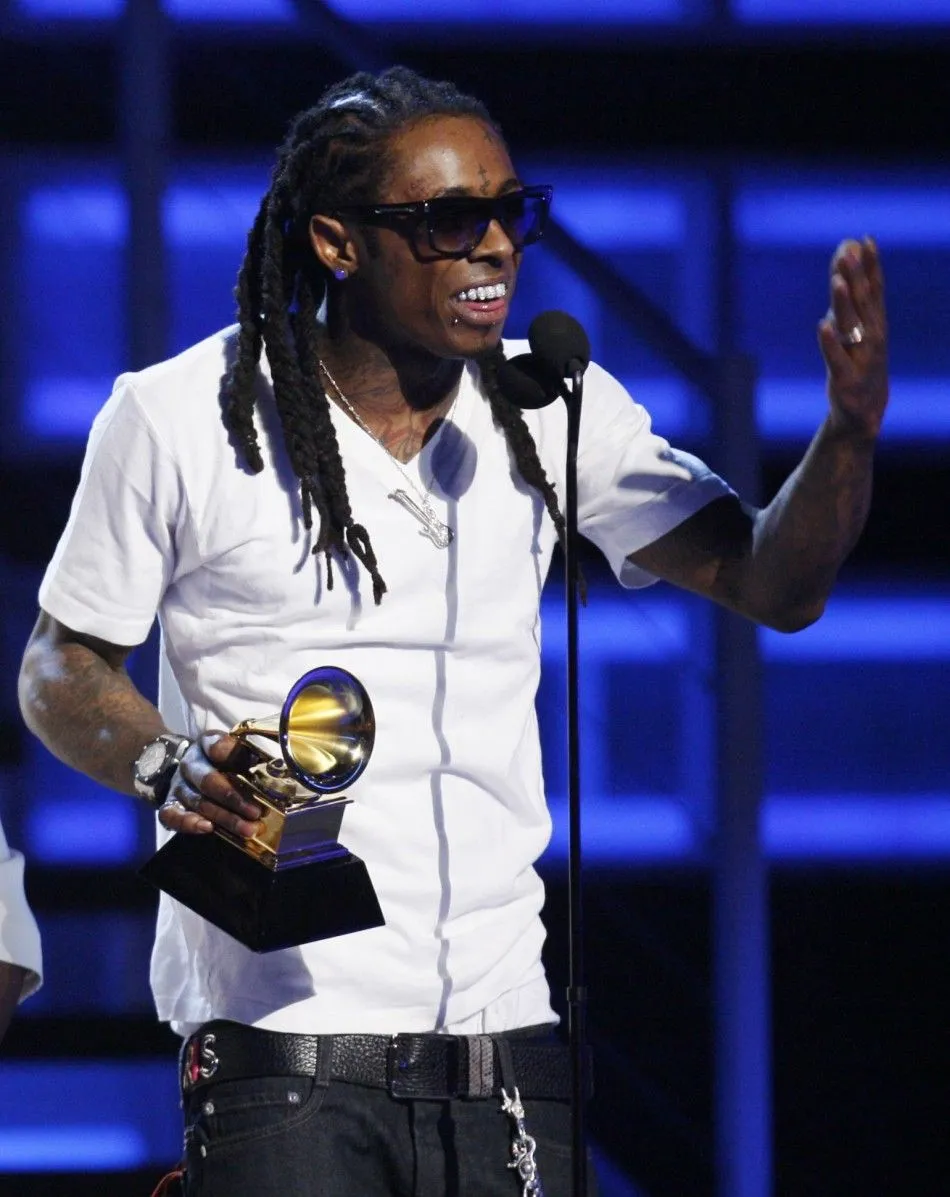

5 Grammys, Millions of Fans – But Is Lil Wayne Truly Free or Just Controlled by the Music Industry?
Lil Wayne, the legendary rapper, continues to dominate the global hip-hop scene. With over 120 million records sold and 5 Grammy Awards to his name, he is undeniably one of the most influential artists in music history. Known for his unique rap style, creative wordplay, and ingenious rhyme schemes, Wayne has built an empire that spans decades. But behind the glamour and accolades, questions are surfacing: is Lil Wayne truly free to express himself, or is he constrained by the very music industry that elevated him to superstardom?
The Rise of a Hip-Hop Icon
From his early days with Cash Money Records to becoming a global sensation, Lil Wayne’s career trajectory has been nothing short of extraordinary. Starting as a young prodigy in New Orleans, Wayne quickly made a name for himself with his distinctive voice and versatile flow. Hits like Lollipop, A Milli, and Go DJ solidified his position in the rap hall of fame, attracting millions of fans worldwide. His ability to blend clever wordplay with deep storytelling set him apart from his peers, earning him respect not only from fans but also from industry insiders.

Wayne’s influence stretches beyond his music. As the CEO of Young Money Entertainment, he has launched the careers of artists like Drake and Nicki Minaj, shaping the next generation of hip-hop stars. This dual role as both artist and executive raises an intriguing question: can he truly remain artistically independent while running a label that relies on the very corporate structures he once rebelled against?
A Career Marked by Achievement and Controversy
Lil Wayne’s music accolades are impressive. Five Grammys, countless platinum albums, and millions of records sold paint the picture of a music mogul at the top of his game. Yet, like many superstars, Wayne’s career has not been without controversy. From legal battles and label disputes to public feuds and highly scrutinized lifestyle choices, his personal and professional life has often been in the spotlight.
For fans, these controversies are part of what makes Wayne intriguing. Every social media post, every cryptic interview, and every new release sparks conversations and debate, keeping him relevant even decades into his career. But some critics argue that the music industry machinery around him has shaped his decisions, from album releases to collaborations, raising concerns about how much control he really has over his creative output.
Artistic Freedom vs. Industry Constraints
One of the most compelling questions facing Lil Wayne today is the tension between artistic freedom and industry control. On one hand, Wayne is celebrated for his bold experimentation and fearless approach to music. He has consistently pushed the boundaries of hip-hop, exploring new sounds and collaborating with artists across genres.
On the other hand, Wayne operates in a complex business environment. Record labels, contracts, and corporate expectations inevitably influence the timing, content, and marketing of his music. Even an artist of his stature cannot fully escape the pressures of a multi-billion-dollar industry that thrives on predictability and profit. This tension is particularly evident in the release strategies of albums like Tha Carter V, which faced years of delays due to legal battles with Cash Money Records, highlighting the conflict between creative vision and contractual obligations.
The Power of Wordplay and Innovation
Wayne’s mastery of lyrical innovation is undeniable. His puns, metaphors, and multisyllabic rhymes have set a standard in hip-hop, influencing countless artists. Tracks like A Milli and 6 Foot 7 Foot showcase not only technical skill but also his ability to captivate listeners with clever twists and unexpected flows. This creativity has cemented his status as a cultural icon, yet it also sparks questions about whether such innovation is spontaneous or strategically guided by the label to maximize commercial success.

Fans continue to debate whether Lil Wayne’s artistic choices are genuinely his own or if they reflect the pressures of maintaining relevance in an industry that constantly demands new hits and viral moments. This ongoing conversation adds another layer of intrigue to his already compelling persona.
The Young Money Empire and Influence on New Artists
As the head of Young Money Entertainment, Wayne has demonstrated a keen eye for talent. His mentorship of stars like Drake and Nicki Minaj showcases his ability to shape the sound and image of modern hip-hop. However, leadership comes with responsibility and constraints. Balancing personal artistry with the demands of running a successful label can blur the lines between freedom and obligation.
Industry insiders note that the success of Young Money has amplified Wayne’s influence but also increased scrutiny. Every decision he makes—from signing new artists to choosing collaborations—is analyzed for both artistic merit and business strategy, highlighting the delicate dance between personal expression and commercial pressures.
Why Fans Keep Watching
Despite questions about control, Wayne’s magnetic personality and relentless output continue to captivate fans. His social media presence, exclusive releases, and live performances keep audiences engaged, creating a sense of anticipation and excitement that few artists can match. Every move—whether a surprise album drop, a public feud, or an unexpected collaboration—becomes a viral moment, reinforcing his status as one of hip-hop’s most dynamic and unpredictable figures.
Critics and fans alike are drawn to this juxtaposition: a rapper who is both incredibly successful and seemingly at odds with the very system that enabled his rise. This tension fuels conversations, memes, and online debates, ensuring that Lil Wayne remains relevant even in a rapidly changing music landscape.

The Legacy Question
Ultimately, the question persists: is Lil Wayne truly free, or is he a product of the music industry? While the answer is complex, one thing is clear—Wayne’s impact on music and culture is undeniable. His creative genius, business acumen, and unwavering influence have left a mark that transcends sales figures and awards.
Whether he is artistically liberated or strategically guided by industry forces, Lil Wayne remains a central figure in hip-hop, a mentor, and a trendsetter whose every move is watched closely by fans, media, and aspiring artists alike.
Conclusion
Lil Wayne’s story is one of talent, triumph, and tension. With millions of fans, 5 Grammy Awards, and a career spanning decades, he embodies both the glory and complexity of the modern music industry. Questions about freedom versus control, artistry versus commerce, and legacy versus relevance make him a figure who is impossible to ignore.
Fans and critics will continue to debate, but one fact remains: Lil Wayne is more than a rapper—he is a cultural force, a music industry icon, and a symbol of what it means to navigate success in a world that never stops watching.


















